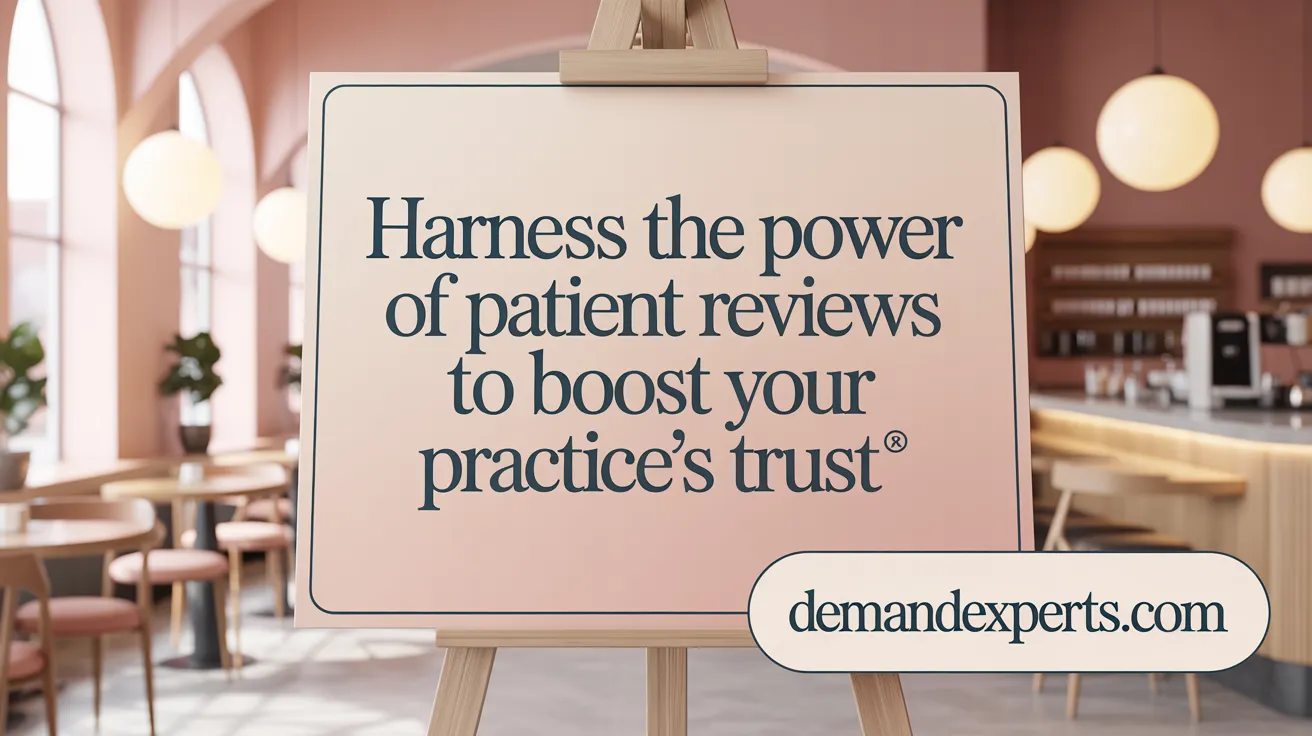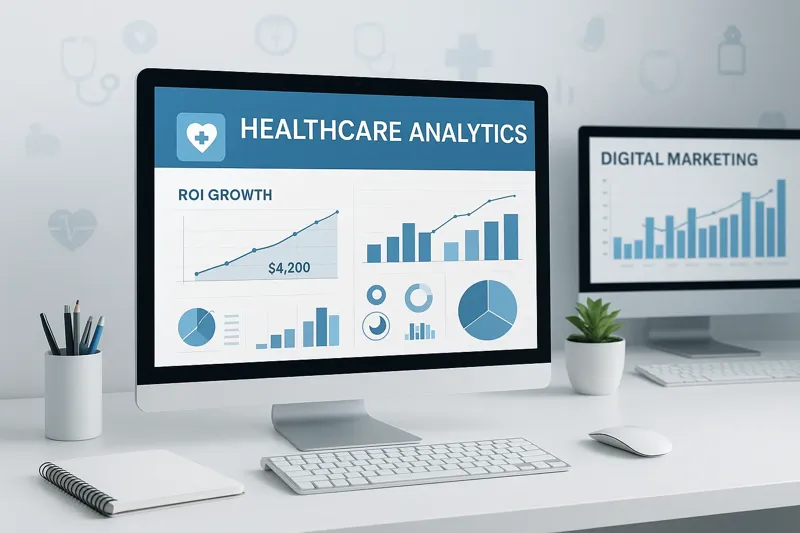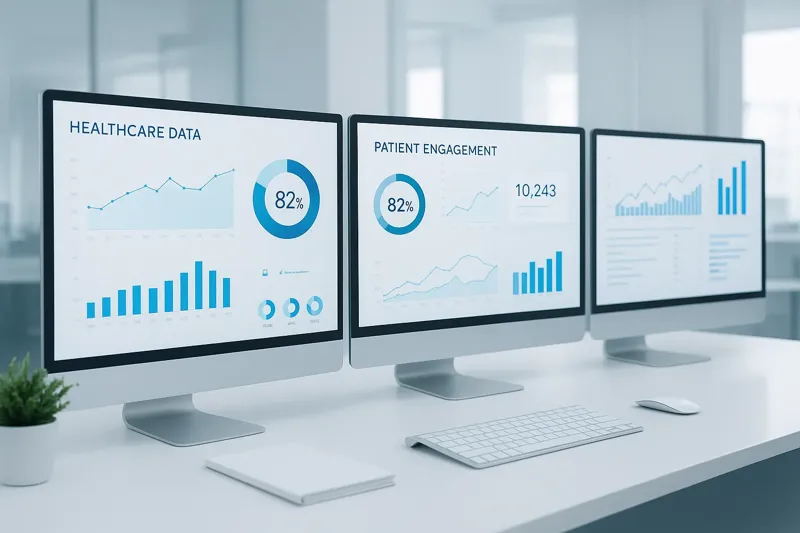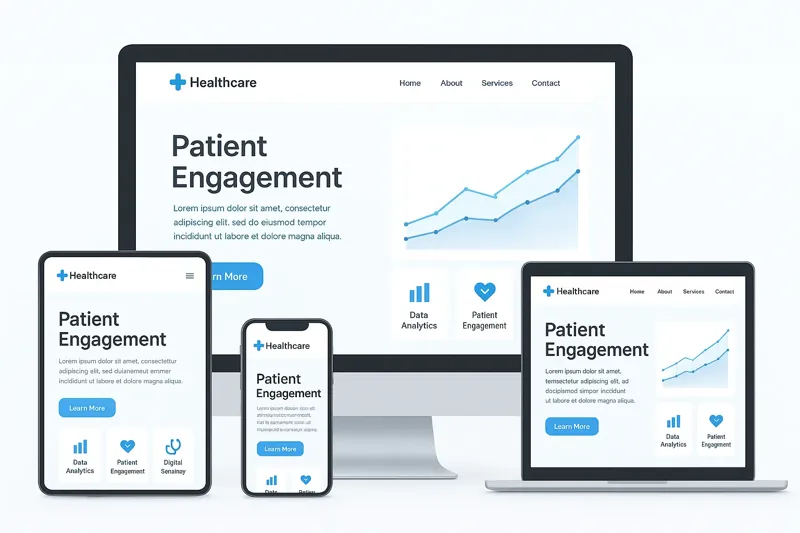Introduction to Reputation Management in Healthcare
The Importance of Online Reputation for Healthcare Providers
In today's digitally-driven healthcare landscape, a provider’s online reputation is pivotal in shaping patient perceptions and trust. Nearly 84% of patients rely on online reviews when selecting a healthcare provider, underscoring the critical role reputation plays in attracting new patients and retaining existing ones.
Impact of Reviews on Patient Decision-Making
Online reviews serve as modern word-of-mouth referrals. Patients often consult multiple reviews—typically between six to ten—before booking an appointment. Positive feedback enhances credibility, fosters trust, and influences search engine rankings, thereby increasing visibility. Conversely, negative reviews can deter potential patients and lead to significant revenue losses.
Overview of Reputation Management Techniques
Effective reputation management encompasses several strategic actions:
- Encouraging Patient Feedback: Using multiple channels like SMS, email, or in-office prompts to gather authentic reviews soon after appointments enhances review volume and quality.
- Optimizing Digital Presence: Claiming and updating profiles on platforms such as Google My Business, Healthgrades, and Yelp ensures consistent and accurate information.
- Engaging with Reviews: Prompt, professional, and empathetic responses to both positive and negative reviews demonstrate accountability and improve patient relationships.
- Improving Patient Experience: Streamlining administrative processes, training staff, and offering a comfortable environment translate into better reviews.
- Utilizing Reputation Management Software: Platforms like DocResponse, rater8, and RepuGen automate review solicitation, monitoring, and analytics, enhancing efficiency and compliance.
This multifaceted approach not only fortifies patient trust but also drives measurable practice growth and competitive advantage in the healthcare market.
The Critical Role of Patient Reviews in Healthcare Reputation

Why are online reviews important for medical practices?
Online reviews significantly impact patient decision-making, with nearly 84% of patients relying on them when choosing healthcare providers. These reviews serve as a form of social proof, enhancing trust and credibility for practices. For more on the Importance of online reviews for doctors, see detailed insights on leveraging social proof in healthcare.
Statistics on patient reliance on online reviews
Research shows that approximately 72-84% of patients consult online reviews before booking an appointment. Additionally, studies indicate that a strong presence of positive reviews can increase patient volume by up to 30% and boost referrals by 35%, underscoring their critical role in patient acquisition. For in-depth data and strategies, check out Top 5 Healthcare Reputation Management Strategies and Impact of Online Reviews on Healthcare Finances.
Influence of ratings on patient trust
High star ratings correlate directly with increased patient confidence. Practices maintaining a 4.5-star rating or higher tend to convert more inquiries into booked appointments. Positive reviews act as a trust multiplier by improving visibility in local search rankings and enhancing patient perception. Learn more about Improving patient trust and acquisition and Building patient trust through reviews.
Importance of generating and managing positive patient feedback
Proactively encouraging satisfied patients to leave reviews within hours or days after visits ensures a steady influx of authentic, positive feedback. Employing reputation management tools for doctors and automated review request systems in healthcare streamlines this process and helps maintain a robust online profile.
Effective management also includes timely, professional responses to both positive and negative reviews, which further strengthens patient relationships and showcases accountability. Such strategies collectively safeguard the practice's reputation, attract high-value patients, and support sustainable growth. For further guidance on responding to online healthcare reviews and managing negative reviews professionally, see the referenced materials.
Building a Robust Digital Presence for Medical Practices
How can medical practices enhance their online visibility and reputation?
Medical practices can significantly improve their online visibility and reputation by focusing on four core strategies:
Optimizing Practice Profiles
- Keep all practice and physician profiles on platforms like Google My Business for healthcare providers, Healthgrades, Yelp, and Zocdoc consistently updated with accurate information.
- Include professional photos, office hours, and service offerings to create a trustworthy and appealing digital presence. See Tips for Managing Doctor Reputation.
Implementing SEO Strategies Tailored for Healthcare
- Use relevant healthcare keywords in website content, metadata, and online profiles to improve search engine rankings, as described in Marketing for Medical Clinics: Best Strategy to Grow Your Clinic.
- Create quality educational content such as blogs, FAQs, and videos that address common patient concerns and demonstrate expertise; see Reputation Management for Doctors.
Leveraging Social Proof Including Testimonials and Case Studies
- Showcase positive patient testimonials and success stories on the practice website and social media channels, utilizing strategies from Patient Stories and Testimonials in Healthcare.
- Integrate case studies that highlight treatment effectiveness, building credibility and patient trust; review Healthcare Reputation Management Strategies for best practices.
Maintaining Updated and Accurate Listings
- Regularly claim and manage listings across top health directories ensuring consistency to boost local search visibility, as explained in Claiming Institution Listings and Multi-Location Listing Management.
- Use reputation management software integration with EHR to automate updates and monitor online presence.
Together, these strategies contribute to better patient engagement, enhanced trust, and a stronger online reputation that attracts new patients and supports practice growth. See also Why Reputation Management Is Crucial for Growing Your Medical Practice.
Effective Strategies to Encourage and Collect Patient Feedback
What methods can medical practices use to gather more patient reviews?
Medical practices can significantly enhance their reputation management by adopting a multi-channel approach to solicit patient feedback. This involves using diverse platforms such as SMS, email, in-office prompts, and online portals to make it easy and convenient for patients to share their experiences.
Timeliness is crucial; practices should send review requests promptly after patient appointments to capture fresh impressions. Automated review request systems in healthcare particularly excel here, often triggered by appointment completion to send personalized messages that encourage patients to leave reviews.
Experience management tools in healthcare enable healthcare providers to collect feedback in real-time, helping identify patient satisfaction trends and address concerns swiftly before they manifest as negative public reviews.
Automated platforms, like Rater8 or DocResponse, integrate with reputation management software integration with EHR and practice management systems, streamlining feedback collection, review monitoring, and patient engagement with minimal staff effort. These tools can automate the follow-up process by sending timely review invitations and reminders, increasing feedback volume and quality organically.
By combining these strategies and technologies, healthcare providers can cultivate a robust feedback ecosystem that bolsters online reputation, builds patient trust, and supports continuous improvement in patient care and experience.
Responding to Online Reviews: Best Practices and Compliance

How should medical practices respond to online reviews, especially negative ones?
Medical practices should respond to online reviews promptly and professionally to build trust and demonstrate accountability. Timely engagement shows patients that their feedback is valued and can mitigate reputational damage. For guidance on responding to reviews in healthcare and best practices for patient review responses, see these resources.
Handling negative reviews requires an empathetic approach. Practices should acknowledge the patient's concerns without admitting fault or revealing protected health information. Responses should focus on general policies and express a willingness to resolve issues offline, such as inviting the patient to contact the office directly to discuss details confidentially. Learn more about handling negative reviews professionally and responding to negative reviews.
HIPAA compliance is critical in all responses. Providers must avoid mentioning any specifics related to a patient's treatment, condition, or personal information. Responses should remain generic and direct patients to private communication channels to protect privacy. For detailed HIPAA-compliant response guidance, refer to HIPAA-compliant review responses and avoiding HIPAA violations in online responses.
Using response libraries can help maintain consistency, efficiency, and professionalism in communications. These pre-approved templates ensure HIPAA compliance and allow staff to address reviews appropriately while reflecting the organization's voice and values. See using a response library for consistency and staff training for patient satisfaction.
By following these best practices, healthcare providers can enhance patient trust, improve online reputation, and comply with legal and ethical standards. More tips on healthcare reputation management strategies and reputation management in healthcare can further guide practices in optimizing their online presence.
Leveraging Reputation Management Software and Tools
What are the advantages of using reputation management software in medical practices?
Reputation management software delivers measurable benefits for healthcare providers by automating and streamlining the process of gathering and marketing patient feedback. These tools help practices increase positive patient reviews through automated review request systems in healthcare, shortly after appointments, improving online visibility and improving patient trust and acquisition.
Integration with electronic health records (EHR) and practice management systems enables seamless workflows, enabling providers to efficiently request reviews and monitor patient sentiment without duplicating efforts. This integration reduces administrative burdens and supports compliance with healthcare privacy regulations, such as maintaining patient confidentiality HIPAA. The importance of reputation management software integration with EHR is highlighted in improving efficiency.
Advanced analytics and sentiment analysis capabilities allow healthcare organizations to monitor trends in patient feedback, identify areas needing operational improvements, and tailor patient experience initiatives accordingly. Understanding patient sentiment fosters continuous enhancement of service quality and reputation as outlined in Healthcare reputation management strategies.
Some featured platforms in healthcare reputation management include:
| Software | Key Features | Integration and Analytics |
|---|---|---|
| rater8 | Automated review requests, real-time monitoring | 100+ EHR integrations, sentiment analysis |
| DocResponse | Digital check-in, telemedicine, payment integration | Review collection, patient communication tools |
| RepuGen | Review tracking, social sharing, AI-powered response | Integrates with major EMRs, HIPAA-compliant responses |
By leveraging these tools, medical practices can increase the volume and quality of positive reviews, maintain HIPAA-compliant engagement with patients, and enhance their digital reputation, ultimately attracting new patients and fostering long-term trust through Healthcare reputation management.
Improving Patient Experience to Enhance Online Reputation

How does patient experience impact online reputation?
Positive patient experiences play a pivotal role in shaping a healthcare provider’s online reputation. Efficient administrative processes reduce wait times and simplify appointment scheduling and check-ins, leading to patient satisfaction from the first interaction. For more insights on this topic, see Importance of online reviews for doctors and Improving patient experience.
Streamlining administrative processes
Simplifying patient intake through digital check-ins, automatic appointment reminders, and easy payment options decreases patient frustration. Automated systems reduce errors and delays, ensuring smooth visits that encourage positive reviews. Explore best practices in Automated Healthcare Reputation Management and Automated Patient Feedback Systems.
Staff training in customer service
Patient satisfaction improves significantly when staff are trained in professionalism, empathy, and clear communication. Well-prepared front desk and clinical teams can address patient concerns promptly and courteously, fostering trust and positive feedback. Learn more about Staff training for better patient reviews and Building trust with patient reviews.
Effective communication practices
Transparent and patient-centered communication helps patients understand their care journey. Providing clear instructions, timely follow-ups, and active listening contribute to a respectful and reassuring environment that patients often mention in their reviews. See Responding to reviews in healthcare and Maintaining patient privacy HIPAA.
Creating a comfortable care environment
A welcoming, clean, and comfortable physical setting reduces patient anxiety and enhances overall impression. Efforts to create a warm atmosphere and maintain privacy demonstrate care beyond clinical needs, further supporting positive patient evaluations. Additional resources include Healthcare reputation management strategies and Improving healthcare service quality.
Improving patient experience through these strategies directly enhances the likelihood of favorable online reviews and bolsters the healthcare organization's reputation. For comprehensive strategies, visit Healthcare Reputation Management Guide.
Handling Negative Feedback and Online Challenges
What is the best approach to managing negative reviews and harmful content?
Managing negative reviews in healthcare requires a professional and strategic approach. Providers should acknowledge patient concerns promptly and empathetically to demonstrate care and accountability. Whenever possible, taking issues offline through private communication such as phone calls or meetings helps de-escalate conflicts and resolve dissatisfaction. For detailed guidance, see responding to reviews in healthcare.
Professional strategies for negative reviews
- Respond empathetically and confidentially: Public responses should avoid disclosing patient-specific information to maintain HIPAA compliance in review responses.
- Use review responses to rebuild trust: Thank patients for feedback, address concerns without admitting fault, and outline steps for improvement. Learn more about building trust with patients through healthcare review responses.
- Train staff on handling online feedback: Ensure a consistent, professional tone aligned with the organization's voice across all responses as recommended in staff training for patient satisfaction.
Dealing with fake or defamatory reviews
- Report abusive or fraudulent content: Platforms have mechanisms to flag and remove reviews that violate terms, especially those that are defamatory or fake. Guidance on reporting abusive reviews can be helpful.
- Avoid engaging with vulgar or malicious comments: Directly responding can escalate the situation and hurt reputation as outlined in handling negative reviews professionally.
- Document harmful content: Maintain records for possible legal actions if warranted. See advice on legal and ethical considerations in healthcare reputation.
Legal and ethical considerations
- Maintain patient confidentiality: Responses must not reveal protected health information or admission of liability. See HIPAA-compliant review responses.
- Follow regulatory compliance: Avoid incentivizing reviews or manipulating feedback to maintain authenticity, in line with ethical review solicitation practices.
- Consult legal counsel when necessary: For serious defamatory cases, professional legal advice can guide appropriate action. Additional recommendations available in reputation management for doctors.
Using negative feedback constructively
Negative reviews provide valuable insights into operational and patient experience weaknesses such as scheduling, billing, or communication problems. Implementing systematic internal feedback systems, like automated surveys, helps identify issues early and guides targeted improvements. Explore collecting patient feedback effectively and using experience management tools in healthcare for further strategies.
Proactively addressing recurring concerns reduces further negative feedback and enhances overall patient satisfaction, thus strengthening the practice’s reputation over time. For more on improving patient experience and reputation management, see resources on automated review request systems in healthcare and patient satisfaction surveys.
Role of Social Media Engagement in Reputation Management

How can social media enhance a medical practice’s reputation?
Social media platforms serve as dynamic tools for healthcare providers to actively engage with patients, enhancing their reputation through consistent, transparent communication and trustworthy content. For more on this, see Digital marketing in healthcare and Healthcare reputation management strategies.
Active Patient Engagement on Social Platforms
Healthcare practices that maintain regular interactions on social media foster community involvement. Listening and responding promptly to patients’ comments or inquiries demonstrate care and accessibility, promoting loyalty and positive sentiment. This aligns with best practices in Responding to reviews in healthcare and Engaging with Online Healthcare Reviews.
Sharing Educational Content and Success Stories
By distributing educational articles, videos, and infographics, practices showcase their expertise, helping patients make informed health decisions. Sharing patient success stories and testimonials adds emotional resonance, reinforcing credibility and hope. See Review Management in Healthcare and Boosting Doctor Credibility Online for examples.
Building Trust and Community Credentials
Social media enables practices to highlight participation in community events and health initiatives, illustrating commitment beyond the clinic. This transparency builds trust and aligns the practice with patients’ values. For insight, read Building trust with patients through healthcare reputation management and Online reputation management strategies for healthcare providers.
Amplifying Patient Testimonials
Amplification of authentic patient testimonials across social channels generates social proof that influences prospective patients. These endorsements elevate a practice’s reputation by showcasing real-life positive outcomes. For strategies, see Leveraging social proof in healthcare and Healthcare Marketing through Patient Stories.
In sum, social media engagement is a strategic asset for healthcare reputation management, supporting patient trust, enhancing visibility, and driving sustainable growth.
Measuring Success and Adapting Reputation Management Strategies

How can medical practices measure and improve their reputation management efforts?
Tracking star ratings and review volume serves as a foundational metric for assessing a healthcare practice's online reputation. A high number of positive reviews correlates with increased patient trust and higher appointment conversions. Monitoring these metrics helps identify patterns that may require operational improvements. For more details, see Impact of Online Reviews on Healthcare Finances.
Analyzing feedback trends through patient comments and recurrent themes provides insight into patient experience areas needing attention, such as scheduling, billing, or communication. This analysis enables targeted adjustments to clinical or administrative processes. Learn about Top 5 Healthcare Reputation Management Strategies.
Utilizing sentiment and performance analytics within reputation management platforms offers a more nuanced understanding of patient perceptions. These tools aggregate and interpret qualitative feedback, benchmarking performance against industry standards and revealing strengths and weaknesses in service delivery. Explore Healthcare reputation management solutions and Automated Healthcare Reputation Management for examples of these technologies.
Continuous improvement relies on regularly reviewing collected data and adjusting strategies accordingly. Implementing timely responses to reviews, optimizing digital presence with automated review request systems in healthcare, and enhancing patient engagement tactics ensure sustained reputation growth. This adaptive approach maintains alignment between patient expectations and healthcare delivery, fostering long-term trust and competitive advantage. See Responding to Online Patient Reviews and Reputation Management for Healthcare Providers.
Conclusion: Sustaining a Positive Reputation for Long-Term Growth
Importance of Ongoing Management
Maintaining a robust healthcare reputation requires consistent and proactive efforts. Continuous monitoring of online reviews and patient feedback ensures timely identification of emerging concerns and opportunities. This dynamic approach prevents reputation erosion and supports sustained patient acquisition.
Building Patient Trust and Loyalty
A positive reputation fosters deeper patient trust and loyalty, essential components for practice growth. Engaging respectfully with both positive and negative feedback demonstrates accountability and compassion, which enhances patient relationships and encourages repeat visits and referrals.
Competitive Advantages of Strong Reputation
Healthcare providers with well-managed reputations gain a competitive edge in attracting and retaining high-value patients. High star ratings and numerous positive reviews improve search engine rankings and visibility, driving appointment requests and expanding market presence.
Future-Proofing Strategies with Technology
Leveraging reputation management software and AI-powered tools streamlines review collection, sentiment analysis, and response workflows. Integration with Electronic Health Records (EHR) systems creates efficient communication channels and ensures HIPAA compliance, enabling healthcare organizations to adapt strategically to evolving patient expectations and digital trends.
Introduction to Reputation Management in Healthcare
The Importance of Online Reputation for Healthcare Providers
In today's digitally-driven healthcare landscape, a provider’s online reputation is pivotal in shaping patient perceptions and trust. Nearly 84% of patients rely on online reviews when selecting a healthcare provider, underscoring the critical role reputation plays in attracting new patients and retaining existing ones.
Impact of Reviews on Patient Decision-Making
Online reviews serve as modern word-of-mouth referrals. Patients often consult multiple reviews—typically between six to ten—before booking an appointment. Positive feedback enhances credibility, fosters trust, and influences search engine rankings, thereby increasing visibility. Conversely, negative reviews can deter potential patients and lead to significant revenue losses.
Overview of Reputation Management Techniques
Effective reputation management encompasses several strategic actions:
- Encouraging Patient Feedback: Using multiple channels like SMS, email, or in-office prompts to gather authentic reviews soon after appointments enhances review volume and quality.
- Optimizing Digital Presence: Claiming and updating profiles on platforms such as Google My Business, Healthgrades, and Yelp ensures consistent and accurate information.
- Engaging with Reviews: Prompt, professional, and empathetic responses to both positive and negative reviews demonstrate accountability and improve patient relationships.
- Improving Patient Experience: Streamlining administrative processes, training staff, and offering a comfortable environment translate into better reviews.
- Utilizing Reputation Management Software: Platforms like DocResponse, rater8, and RepuGen automate review solicitation, monitoring, and analytics, enhancing efficiency and compliance.
This multifaceted approach not only fortifies patient trust but also drives measurable practice growth and competitive advantage in the healthcare market.
The Critical Role of Patient Reviews in Healthcare Reputation

Why are online reviews important for medical practices?
Online reviews significantly impact patient decision-making, with nearly 84% of patients relying on them when choosing healthcare providers. These reviews serve as a form of social proof, enhancing trust and credibility for practices. For more on the Importance of online reviews for doctors, see detailed insights on leveraging social proof in healthcare.
Statistics on patient reliance on online reviews
Research shows that approximately 72-84% of patients consult online reviews before booking an appointment. Additionally, studies indicate that a strong presence of positive reviews can increase patient volume by up to 30% and boost referrals by 35%, underscoring their critical role in patient acquisition. For in-depth data and strategies, check out Top 5 Healthcare Reputation Management Strategies and Impact of Online Reviews on Healthcare Finances.
Influence of ratings on patient trust
High star ratings correlate directly with increased patient confidence. Practices maintaining a 4.5-star rating or higher tend to convert more inquiries into booked appointments. Positive reviews act as a trust multiplier by improving visibility in local search rankings and enhancing patient perception. Learn more about Improving patient trust and acquisition and Building patient trust through reviews.
Importance of generating and managing positive patient feedback
Proactively encouraging satisfied patients to leave reviews within hours or days after visits ensures a steady influx of authentic, positive feedback. Employing reputation management tools for doctors and automated review request systems in healthcare streamlines this process and helps maintain a robust online profile.
Effective management also includes timely, professional responses to both positive and negative reviews, which further strengthens patient relationships and showcases accountability. Such strategies collectively safeguard the practice's reputation, attract high-value patients, and support sustainable growth. For further guidance on responding to online healthcare reviews and managing negative reviews professionally, see the referenced materials.
Building a Robust Digital Presence for Medical Practices
How can medical practices enhance their online visibility and reputation?
Medical practices can significantly improve their online visibility and reputation by focusing on four core strategies:
Optimizing Practice Profiles
- Keep all practice and physician profiles on platforms like Google My Business for healthcare providers, Healthgrades, Yelp, and Zocdoc consistently updated with accurate information.
- Include professional photos, office hours, and service offerings to create a trustworthy and appealing digital presence. See Tips for Managing Doctor Reputation.
Implementing SEO Strategies Tailored for Healthcare
- Use relevant healthcare keywords in website content, metadata, and online profiles to improve search engine rankings, as described in Marketing for Medical Clinics: Best Strategy to Grow Your Clinic.
- Create quality educational content such as blogs, FAQs, and videos that address common patient concerns and demonstrate expertise; see Reputation Management for Doctors.
Leveraging Social Proof Including Testimonials and Case Studies
- Showcase positive patient testimonials and success stories on the practice website and social media channels, utilizing strategies from Patient Stories and Testimonials in Healthcare.
- Integrate case studies that highlight treatment effectiveness, building credibility and patient trust; review Healthcare Reputation Management Strategies for best practices.
Maintaining Updated and Accurate Listings
- Regularly claim and manage listings across top health directories ensuring consistency to boost local search visibility, as explained in Claiming Institution Listings and Multi-Location Listing Management.
- Use reputation management software integration with EHR to automate updates and monitor online presence.
Together, these strategies contribute to better patient engagement, enhanced trust, and a stronger online reputation that attracts new patients and supports practice growth. See also Why Reputation Management Is Crucial for Growing Your Medical Practice.
Effective Strategies to Encourage and Collect Patient Feedback
What methods can medical practices use to gather more patient reviews?
Medical practices can significantly enhance their reputation management by adopting a multi-channel approach to solicit patient feedback. This involves using diverse platforms such as SMS, email, in-office prompts, and online portals to make it easy and convenient for patients to share their experiences.
Timeliness is crucial; practices should send review requests promptly after patient appointments to capture fresh impressions. Automated review request systems in healthcare particularly excel here, often triggered by appointment completion to send personalized messages that encourage patients to leave reviews.
Experience management tools in healthcare enable healthcare providers to collect feedback in real-time, helping identify patient satisfaction trends and address concerns swiftly before they manifest as negative public reviews.
Automated platforms, like Rater8 or DocResponse, integrate with reputation management software integration with EHR and practice management systems, streamlining feedback collection, review monitoring, and patient engagement with minimal staff effort. These tools can automate the follow-up process by sending timely review invitations and reminders, increasing feedback volume and quality organically.
By combining these strategies and technologies, healthcare providers can cultivate a robust feedback ecosystem that bolsters online reputation, builds patient trust, and supports continuous improvement in patient care and experience.
Responding to Online Reviews: Best Practices and Compliance

How should medical practices respond to online reviews, especially negative ones?
Medical practices should respond to online reviews promptly and professionally to build trust and demonstrate accountability. Timely engagement shows patients that their feedback is valued and can mitigate reputational damage. For guidance on responding to reviews in healthcare and best practices for patient review responses, see these resources.
Handling negative reviews requires an empathetic approach. Practices should acknowledge the patient's concerns without admitting fault or revealing protected health information. Responses should focus on general policies and express a willingness to resolve issues offline, such as inviting the patient to contact the office directly to discuss details confidentially. Learn more about handling negative reviews professionally and responding to negative reviews.
HIPAA compliance is critical in all responses. Providers must avoid mentioning any specifics related to a patient's treatment, condition, or personal information. Responses should remain generic and direct patients to private communication channels to protect privacy. For detailed HIPAA-compliant response guidance, refer to HIPAA-compliant review responses and avoiding HIPAA violations in online responses.
Using response libraries can help maintain consistency, efficiency, and professionalism in communications. These pre-approved templates ensure HIPAA compliance and allow staff to address reviews appropriately while reflecting the organization's voice and values. See using a response library for consistency and staff training for patient satisfaction.
By following these best practices, healthcare providers can enhance patient trust, improve online reputation, and comply with legal and ethical standards. More tips on healthcare reputation management strategies and reputation management in healthcare can further guide practices in optimizing their online presence.
Leveraging Reputation Management Software and Tools
What are the advantages of using reputation management software in medical practices?
Reputation management software delivers measurable benefits for healthcare providers by automating and streamlining the process of gathering and marketing patient feedback. These tools help practices increase positive patient reviews through automated review request systems in healthcare, shortly after appointments, improving online visibility and improving patient trust and acquisition.
Integration with electronic health records (EHR) and practice management systems enables seamless workflows, enabling providers to efficiently request reviews and monitor patient sentiment without duplicating efforts. This integration reduces administrative burdens and supports compliance with healthcare privacy regulations, such as maintaining patient confidentiality HIPAA. The importance of reputation management software integration with EHR is highlighted in improving efficiency.
Advanced analytics and sentiment analysis capabilities allow healthcare organizations to monitor trends in patient feedback, identify areas needing operational improvements, and tailor patient experience initiatives accordingly. Understanding patient sentiment fosters continuous enhancement of service quality and reputation as outlined in Healthcare reputation management strategies.
Some featured platforms in healthcare reputation management include:
| Software | Key Features | Integration and Analytics |
|---|---|---|
| rater8 | Automated review requests, real-time monitoring | 100+ EHR integrations, sentiment analysis |
| DocResponse | Digital check-in, telemedicine, payment integration | Review collection, patient communication tools |
| RepuGen | Review tracking, social sharing, AI-powered response | Integrates with major EMRs, HIPAA-compliant responses |
By leveraging these tools, medical practices can increase the volume and quality of positive reviews, maintain HIPAA-compliant engagement with patients, and enhance their digital reputation, ultimately attracting new patients and fostering long-term trust through Healthcare reputation management.
Improving Patient Experience to Enhance Online Reputation

How does patient experience impact online reputation?
Positive patient experiences play a pivotal role in shaping a healthcare provider’s online reputation. Efficient administrative processes reduce wait times and simplify appointment scheduling and check-ins, leading to patient satisfaction from the first interaction. For more insights on this topic, see Importance of online reviews for doctors and Improving patient experience.
Streamlining administrative processes
Simplifying patient intake through digital check-ins, automatic appointment reminders, and easy payment options decreases patient frustration. Automated systems reduce errors and delays, ensuring smooth visits that encourage positive reviews. Explore best practices in Automated Healthcare Reputation Management and Automated Patient Feedback Systems.
Staff training in customer service
Patient satisfaction improves significantly when staff are trained in professionalism, empathy, and clear communication. Well-prepared front desk and clinical teams can address patient concerns promptly and courteously, fostering trust and positive feedback. Learn more about Staff training for better patient reviews and Building trust with patient reviews.
Effective communication practices
Transparent and patient-centered communication helps patients understand their care journey. Providing clear instructions, timely follow-ups, and active listening contribute to a respectful and reassuring environment that patients often mention in their reviews. See Responding to reviews in healthcare and Maintaining patient privacy HIPAA.
Creating a comfortable care environment
A welcoming, clean, and comfortable physical setting reduces patient anxiety and enhances overall impression. Efforts to create a warm atmosphere and maintain privacy demonstrate care beyond clinical needs, further supporting positive patient evaluations. Additional resources include Healthcare reputation management strategies and Improving healthcare service quality.
Improving patient experience through these strategies directly enhances the likelihood of favorable online reviews and bolsters the healthcare organization's reputation. For comprehensive strategies, visit Healthcare Reputation Management Guide.
Handling Negative Feedback and Online Challenges
What is the best approach to managing negative reviews and harmful content?
Managing negative reviews in healthcare requires a professional and strategic approach. Providers should acknowledge patient concerns promptly and empathetically to demonstrate care and accountability. Whenever possible, taking issues offline through private communication such as phone calls or meetings helps de-escalate conflicts and resolve dissatisfaction. For detailed guidance, see responding to reviews in healthcare.
Professional strategies for negative reviews
- Respond empathetically and confidentially: Public responses should avoid disclosing patient-specific information to maintain HIPAA compliance in review responses.
- Use review responses to rebuild trust: Thank patients for feedback, address concerns without admitting fault, and outline steps for improvement. Learn more about building trust with patients through healthcare review responses.
- Train staff on handling online feedback: Ensure a consistent, professional tone aligned with the organization's voice across all responses as recommended in staff training for patient satisfaction.
Dealing with fake or defamatory reviews
- Report abusive or fraudulent content: Platforms have mechanisms to flag and remove reviews that violate terms, especially those that are defamatory or fake. Guidance on reporting abusive reviews can be helpful.
- Avoid engaging with vulgar or malicious comments: Directly responding can escalate the situation and hurt reputation as outlined in handling negative reviews professionally.
- Document harmful content: Maintain records for possible legal actions if warranted. See advice on legal and ethical considerations in healthcare reputation.
Legal and ethical considerations
- Maintain patient confidentiality: Responses must not reveal protected health information or admission of liability. See HIPAA-compliant review responses.
- Follow regulatory compliance: Avoid incentivizing reviews or manipulating feedback to maintain authenticity, in line with ethical review solicitation practices.
- Consult legal counsel when necessary: For serious defamatory cases, professional legal advice can guide appropriate action. Additional recommendations available in reputation management for doctors.
Using negative feedback constructively
Negative reviews provide valuable insights into operational and patient experience weaknesses such as scheduling, billing, or communication problems. Implementing systematic internal feedback systems, like automated surveys, helps identify issues early and guides targeted improvements. Explore collecting patient feedback effectively and using experience management tools in healthcare for further strategies.
Proactively addressing recurring concerns reduces further negative feedback and enhances overall patient satisfaction, thus strengthening the practice’s reputation over time. For more on improving patient experience and reputation management, see resources on automated review request systems in healthcare and patient satisfaction surveys.
Role of Social Media Engagement in Reputation Management

How can social media enhance a medical practice’s reputation?
Social media platforms serve as dynamic tools for healthcare providers to actively engage with patients, enhancing their reputation through consistent, transparent communication and trustworthy content. For more on this, see Digital marketing in healthcare and Healthcare reputation management strategies.
Active Patient Engagement on Social Platforms
Healthcare practices that maintain regular interactions on social media foster community involvement. Listening and responding promptly to patients’ comments or inquiries demonstrate care and accessibility, promoting loyalty and positive sentiment. This aligns with best practices in Responding to reviews in healthcare and Engaging with Online Healthcare Reviews.
Sharing Educational Content and Success Stories
By distributing educational articles, videos, and infographics, practices showcase their expertise, helping patients make informed health decisions. Sharing patient success stories and testimonials adds emotional resonance, reinforcing credibility and hope. See Review Management in Healthcare and Boosting Doctor Credibility Online for examples.
Building Trust and Community Credentials
Social media enables practices to highlight participation in community events and health initiatives, illustrating commitment beyond the clinic. This transparency builds trust and aligns the practice with patients’ values. For insight, read Building trust with patients through healthcare reputation management and Online reputation management strategies for healthcare providers.
Amplifying Patient Testimonials
Amplification of authentic patient testimonials across social channels generates social proof that influences prospective patients. These endorsements elevate a practice’s reputation by showcasing real-life positive outcomes. For strategies, see Leveraging social proof in healthcare and Healthcare Marketing through Patient Stories.
In sum, social media engagement is a strategic asset for healthcare reputation management, supporting patient trust, enhancing visibility, and driving sustainable growth.
Measuring Success and Adapting Reputation Management Strategies

How can medical practices measure and improve their reputation management efforts?
Tracking star ratings and review volume serves as a foundational metric for assessing a healthcare practice's online reputation. A high number of positive reviews correlates with increased patient trust and higher appointment conversions. Monitoring these metrics helps identify patterns that may require operational improvements. For more details, see Impact of Online Reviews on Healthcare Finances.
Analyzing feedback trends through patient comments and recurrent themes provides insight into patient experience areas needing attention, such as scheduling, billing, or communication. This analysis enables targeted adjustments to clinical or administrative processes. Learn about Top 5 Healthcare Reputation Management Strategies.
Utilizing sentiment and performance analytics within reputation management platforms offers a more nuanced understanding of patient perceptions. These tools aggregate and interpret qualitative feedback, benchmarking performance against industry standards and revealing strengths and weaknesses in service delivery. Explore Healthcare reputation management solutions and Automated Healthcare Reputation Management for examples of these technologies.
Continuous improvement relies on regularly reviewing collected data and adjusting strategies accordingly. Implementing timely responses to reviews, optimizing digital presence with automated review request systems in healthcare, and enhancing patient engagement tactics ensure sustained reputation growth. This adaptive approach maintains alignment between patient expectations and healthcare delivery, fostering long-term trust and competitive advantage. See Responding to Online Patient Reviews and Reputation Management for Healthcare Providers.
Conclusion: Sustaining a Positive Reputation for Long-Term Growth
Importance of Ongoing Management
Maintaining a robust healthcare reputation requires consistent and proactive efforts. Continuous monitoring of online reviews and patient feedback ensures timely identification of emerging concerns and opportunities. This dynamic approach prevents reputation erosion and supports sustained patient acquisition.
Building Patient Trust and Loyalty
A positive reputation fosters deeper patient trust and loyalty, essential components for practice growth. Engaging respectfully with both positive and negative feedback demonstrates accountability and compassion, which enhances patient relationships and encourages repeat visits and referrals.
Competitive Advantages of Strong Reputation
Healthcare providers with well-managed reputations gain a competitive edge in attracting and retaining high-value patients. High star ratings and numerous positive reviews improve search engine rankings and visibility, driving appointment requests and expanding market presence.
Future-Proofing Strategies with Technology
Leveraging reputation management software and AI-powered tools streamlines review collection, sentiment analysis, and response workflows. Integration with Electronic Health Records (EHR) systems creates efficient communication channels and ensures HIPAA compliance, enabling healthcare organizations to adapt strategically to evolving patient expectations and digital trends.






